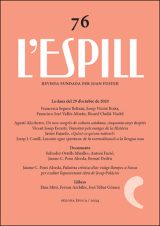Robert Menasse
is one of Austria’s leading authors and essayists. He has published several novels including Don Juan de La Mancha oder Die Erziehung der Lust (2008) and Die Hauptstadt (2017).
Articles

The Treaty of Rome was the Copernican revolution in the history of European democracy, the moment at which nationalism and the nation were consigned to history. Since the Lisbon Treaty, however, national self-interest has returned to Europe, so that today the question is: who will determine Europe’s future – the universal or the one-dimensional European?

A brief history of the European future
Or, why we must earn our inheritance
The sooner Europe gets used to a future without the nation-state, the better, writes Robert Menasse. Amnesia about what the unification project originally meant is causing a catastrophic lack of imagination about where it is heading.
Jörg Haider was on the brink of a political comeback when he died in a car accident in October. Throughout his career, Haider’s critics in Austria made a disastrous mistake, writes Robert Menasse. They suspected him of fascism, yet didn’t understand it correctly – and therefore couldn’t react adequately.

